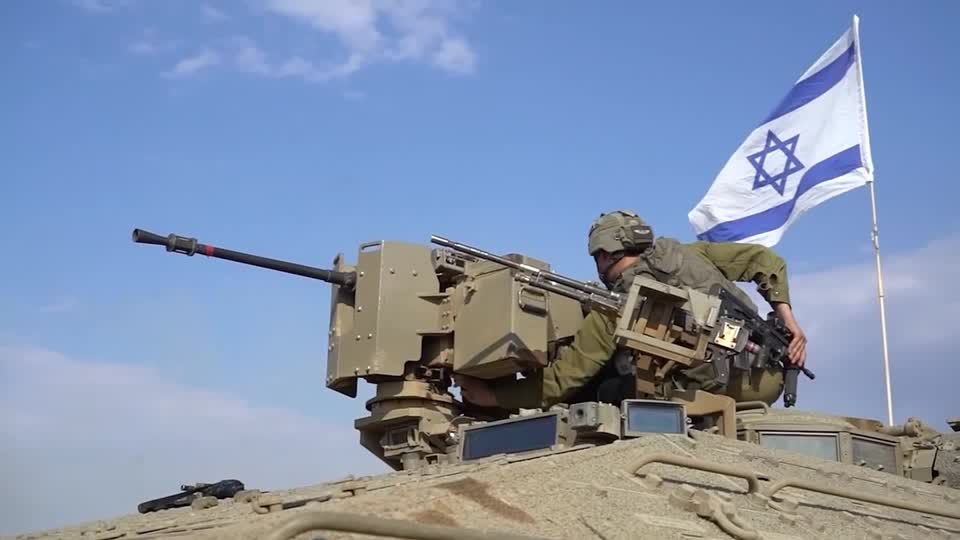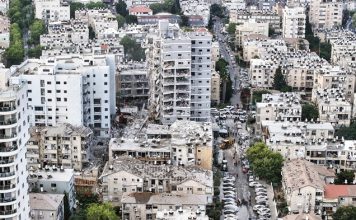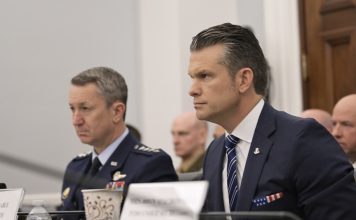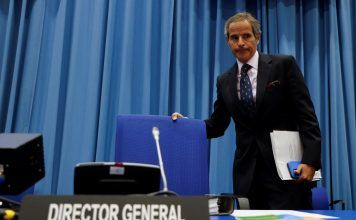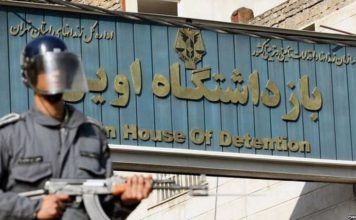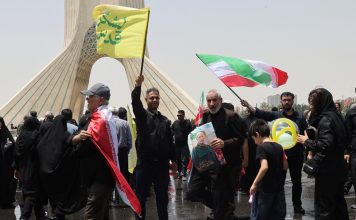By Nandita Bose and Katharine Jackson
WASHINGTON, Oct 15 (Reuters) – Top U.S. officials warned on Sunday that the war between Israel and the militant group Hamas could escalate into a bigger conflict across the Middle East, saying they were worried the Lebanese group Hezbollah could attack Israel’s north or that Iran might get involved.
Another set of U.S. warships was headed to the region in a show of force meant to prevent such escalation.
U.S. Defense Secretary Lloyd Austin announced deployment of a second carrier group late on Saturday, calling it a sign of “our resolve to deter any state or non-state actor seeking to escalate this war.” The aircraft carrier the USS Dwight Eisenhower will join a small fleet including the massive USS Gerald R. Ford aircraft carrier in the eastern Mediterranean.
Israel has unleashed a ferocious bombing campaign over Gaza in retaliation for unprecedented attacks inside Israel by Hamas eight days ago that killed some 1,300 Israelis, mostly civilians. Gaza authorities say more than 2,200 people have been killed there, a quarter of them children. Casualties are expected to rise as Israel prepares for an expected ground assault on the tiny, densely populated enclave.
White House national security adviser Jake Sullivan told CBS that “there is a risk of an escalation of this conflict, the opening of a second front in the north and, of course, Iran‘s involvement.”
The comments were echoed by White House National Security Council spokesman John Kirby, who told Fox News that the White House was worried about “a potential escalation or a widening of this conflict.”
Iran Foreign Minister Hossein Amirabdollahian warned his country could act, telling al Jazeera that it had conveyed a message to Israeli officials that “if they do not cease their atrocities in Gaza, Iran cannot simply remain an observer.”
“If the scope of the war expands, significant damages will also be inflicted upon America,” he warned.
Sullivan discussed a new weapons package for Israel and Ukraine that would be “significantly higher” than the previously reported $2 billion. He told CBS that President Joe Biden planned to have intensive talks on the package with Congress, which has been hobbled by Republicans’ struggles to pick a new speaker of the House of Representatives.
Senate majority leader Chuck Schumer, speaking in Tel Aviv on Sunday, said the Senate could move first. “We’re not waiting for the House,” he said.
Meanwhile, Republican Senator Lindsey Graham said on Sunday he is traveling to the region with other senators in coming days to push continued negotiations between Saudi Arabia and Israel.
Graham said he intended to introduce a bill that would “allow military action by the United States in conjunction with Israel to knock Iran out of the oil business” if Iran attacks Israel.
Hamas, Iran Leaders Agree to ‘Continue Cooperation’ After Attack on Israel
HUMANITARIAN CRISIS
U.S. government officials also said they are mobilizing to help alleviate the humanitarian crisis in Gaza. Biden, in a message posted on X, formerly Twitter, said: “We must not lose sight of the fact that the overwhelming majority of Palestinians had nothing to do with Hamas’ appalling attacks, and are suffering as a result of them.”
The U.S. has appointed former ambassador to Turkey David Satterfield as a special envoy for Middle East humanitarian issues. His focus would be on the Gaza crisis, “including work to facilitate the provision of life-saving assistance to the most vulnerable people and promote the safety of civilians,” the State Department said.
In a meeting on Sunday with Egyptian President Abdel Fattah El-Sisi, U.S. Secretary of State Anthony Blinken discussed ways to keep civilians in Gaza out of harm’s way and to evacuate American citizens from the territory, according to a State Department statement.
Sullivan told NBC, “so far, we have not been able to get American citizens through the border crossing and I’m not aware of anyone else being able to get out at this time.”
He added that he wanted to make sure the civilian population that remained in Gaza had access to food, water and safe shelter, and in an interview with CNN said Israeli officials had recently “turned the water pipe back on in southern Gaza.”
(Reporting by Nandita Bose, Katharine Jackson, and Christopher Bing in Washington; Writing by Raphael Satter; Editing by Heather Timmons and Bill Berkrot)

